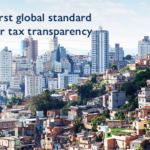A one-day conference on globalisation organised by the Humanitarian Affairs Review focused on the corporate social responsibility (CSR) of multinational companies when investing in developing countries.
Background:
"Getting down to detail in the globalisation debate" was the title of a conference held in Brussels on 1 December 2003 and organised by the Humanitarian Affairs Review. Industry and NGO representatives discussed issues relating to the social and political responsibility of multinational companies investing in developing countries. The debate was moderated by EurActiv publisher Christophe Leclercq.
Issues:
In a session called "Are multinational corporations the ‘unsung heroes’ of development aid?", a participant mentioned that more than 80 per cent of financial flows to the third world is now coming from the private sector (mainly large multinational companies), whereas governments only provide around 20 per cent.
Positions:
In a panel on the political role of investor companies, SustainAbility chairman John Elkington pointed to the historical case of Nelson Mandela urging Shell not to leave South Africa under the apartheid regime. Mr Elkington called for more transparency and the need to be better informed about what exactly companies are doing.
Column Joyce, global e-business strategy manager for transport company DHL, explained how his company takes up its responsibility in more than 220 countries. He underlined the power of integrating social responsibility in the corporate culture. While CSR requires flexibility and voluntary pioneeering, on political investment criteria there is a need for an international framework. Most speakers agreed that the UN’s Global Compact would be a good starting point for such a framework.
Anton Mifsud-Bonnici, corporate responsibility adviser for BP, made the case for taking up social responsibility through codes of conduct. He also underlined that multinationals should not fear saying that theyare businesses, while putting this into perspective: "BP pays around 5 billion dollars in dividends, and 48 billion in taxes".
Dwight Justice, speaking for the International Confederation of Free Trade Unions (ICFTU) indicated that CSR is about business ethics, but also universal values, which cannot be entirely up to corporations. He stressed that "not all stakeholders are equal" and advocated stronger presence of unions in the globalisation debate.



